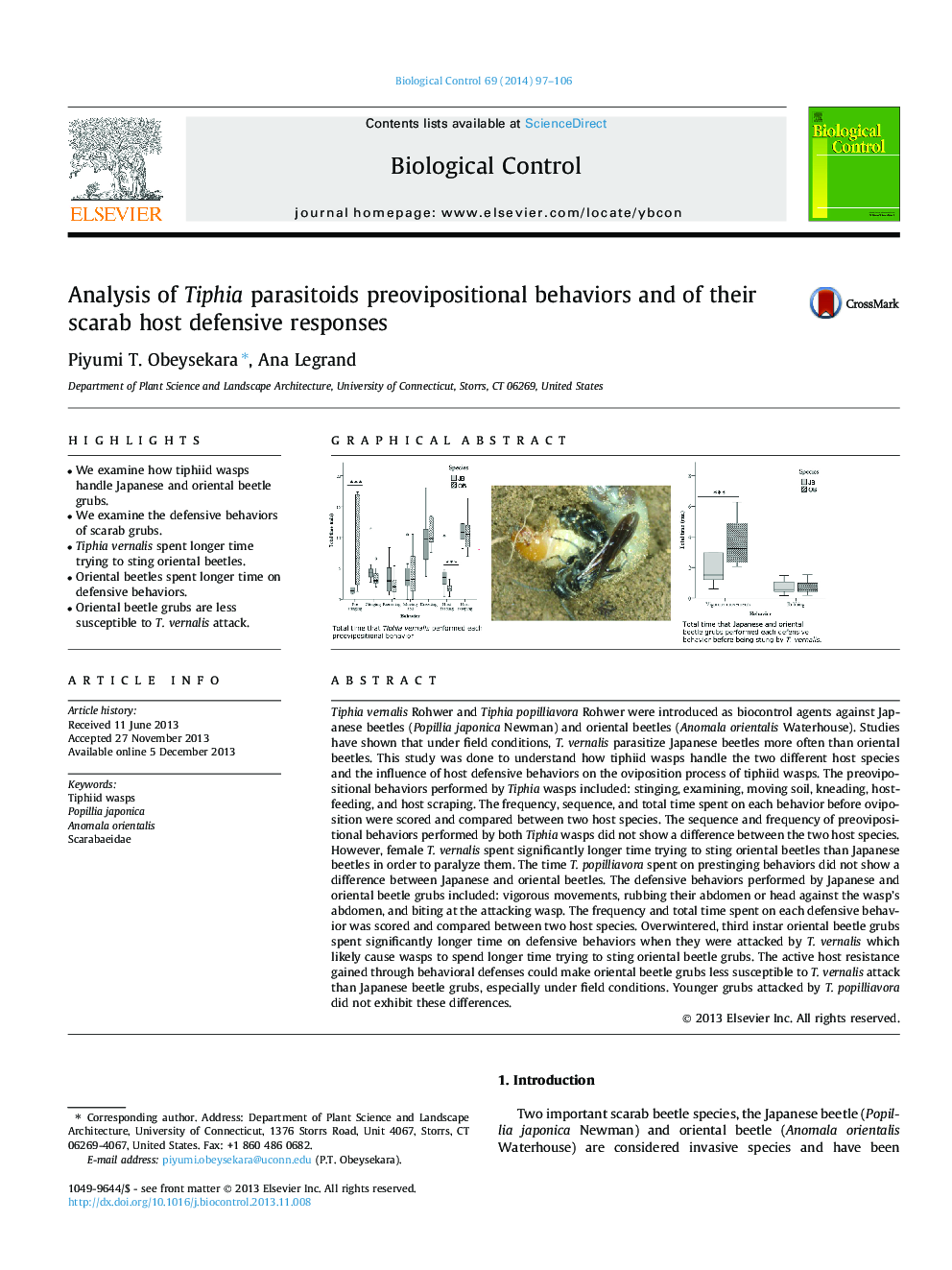| کد مقاله | کد نشریه | سال انتشار | مقاله انگلیسی | نسخه تمام متن |
|---|---|---|---|---|
| 4503987 | 1624265 | 2014 | 10 صفحه PDF | دانلود رایگان |
• We examine how tiphiid wasps handle Japanese and oriental beetle grubs.
• We examine the defensive behaviors of scarab grubs.
• Tiphia vernalis spent longer time trying to sting oriental beetles.
• Oriental beetles spent longer time on defensive behaviors.
• Oriental beetle grubs are less susceptible to T. vernalis attack.
Tiphia vernalis Rohwer and Tiphia popilliavora Rohwer were introduced as biocontrol agents against Japanese beetles (Popillia japonica Newman) and oriental beetles (Anomala orientalis Waterhouse). Studies have shown that under field conditions, T. vernalis parasitize Japanese beetles more often than oriental beetles. This study was done to understand how tiphiid wasps handle the two different host species and the influence of host defensive behaviors on the oviposition process of tiphiid wasps. The preovipositional behaviors performed by Tiphia wasps included: stinging, examining, moving soil, kneading, host-feeding, and host scraping. The frequency, sequence, and total time spent on each behavior before oviposition were scored and compared between two host species. The sequence and frequency of preovipositional behaviors performed by both Tiphia wasps did not show a difference between the two host species. However, female T. vernalis spent significantly longer time trying to sting oriental beetles than Japanese beetles in order to paralyze them. The time T. popilliavora spent on prestinging behaviors did not show a difference between Japanese and oriental beetles. The defensive behaviors performed by Japanese and oriental beetle grubs included: vigorous movements, rubbing their abdomen or head against the wasp’s abdomen, and biting at the attacking wasp. The frequency and total time spent on each defensive behavior was scored and compared between two host species. Overwintered, third instar oriental beetle grubs spent significantly longer time on defensive behaviors when they were attacked by T. vernalis which likely cause wasps to spend longer time trying to sting oriental beetle grubs. The active host resistance gained through behavioral defenses could make oriental beetle grubs less susceptible to T. vernalis attack than Japanese beetle grubs, especially under field conditions. Younger grubs attacked by T. popilliavora did not exhibit these differences.
Figure optionsDownload as PowerPoint slide
Journal: Biological Control - Volume 69, February 2014, Pages 97–106
